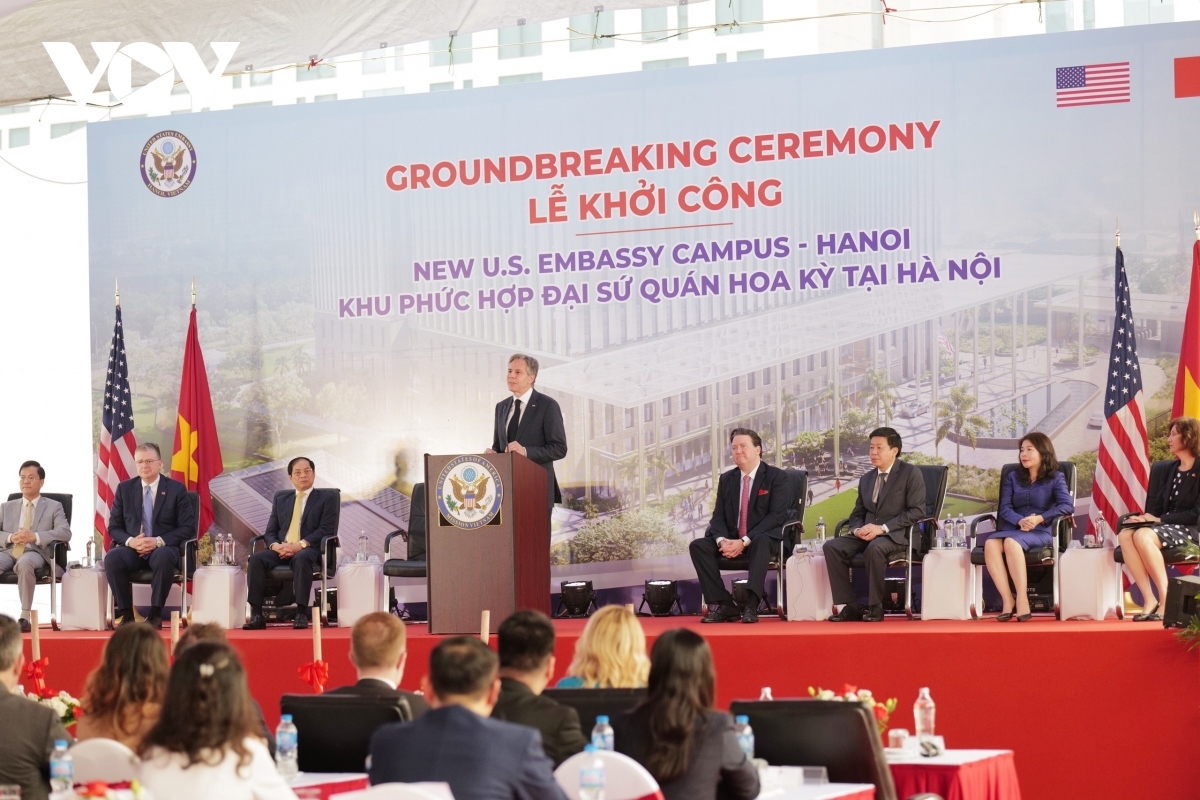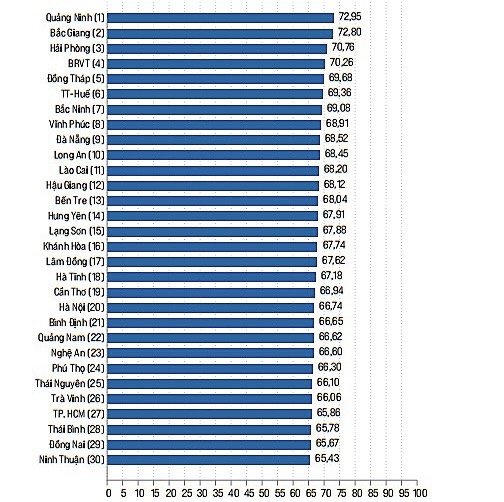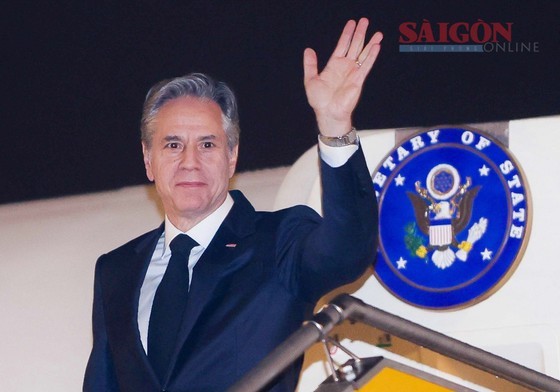
United States Secretary of State Antony Blinken and Vietnamese Minister of Foreign Affairs Bùi Thanh Sơn on Saturday broke ground on the construction of the new US Embassy in Cầu Giấy District, Hà Nội.
The new embassy represents “another significant step towards strengthening the vital partnership between our nations and peoples,” US State Secretary Blinken said in his address.
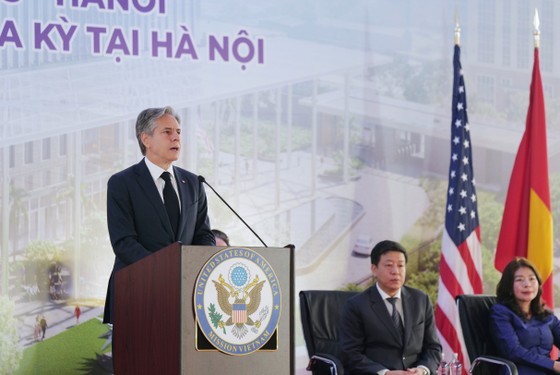
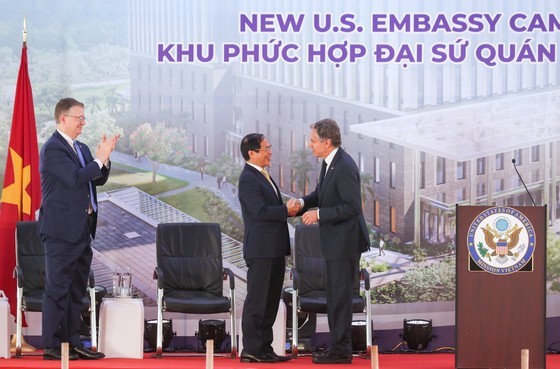
The US Embassy campus has a total investment of US$1.2 billion, built on 39,000sq.m, on a land area of 3.2 hectares, featuring plenty of greenery.
The campus will have a 99-year lease, as announced during the visit of Vice President Kamala Harris to Hà Nội in August 2021.
The design of the US Embassy complex will combine the modern urban landscape with the natural beauty of Hà Nội as well as inspiration from the UNESCO World Heritage of Hạ Long Bay.
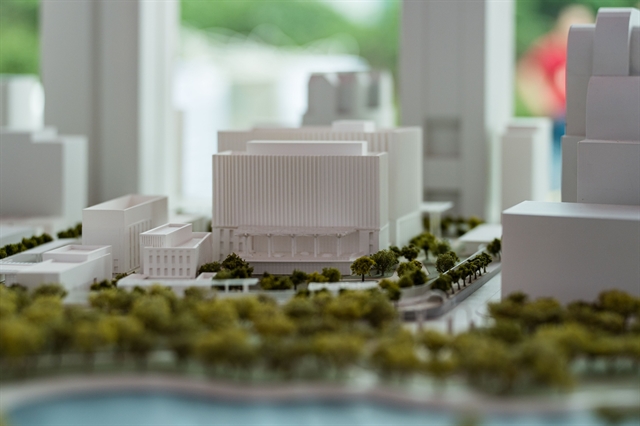
Most of the construction will be done with recycled materials and the embassy’s design will be energy-efficient and flood-resistant, in the event of major storms.
The foundation of the building will be built with basalt stone, available both in Việt Nam and the US, and represents strength and stability, while the glass and stainless steel panels used in roofing will create an open atmosphere.
The architecture of the campus will stand for the shared commitments of the two countries in sustainability and climate change resilience.
US Secretary of State Antony Blinken said this is the day he has been waiting for a long time, adding he first heard about this project when he was still Deputy Secretary of State.
Secretary Blinken also expressed his gratitude to the Vietnamese government and the US Embassy staff for their efforts to make this historic day into reality.
Over the past 27 years, since the normalisation of ties in 1995, the relationship between Việt Nam and the US has been continually strengthened.
This year marks the 10th anniversary of the Comprehensive Partnership between the two countries, and the two countries have cooperated in all aspects, from improving public health to expanding all-encompassing economic opportunities to accelerating the transition to clean energy, Blinken noted.
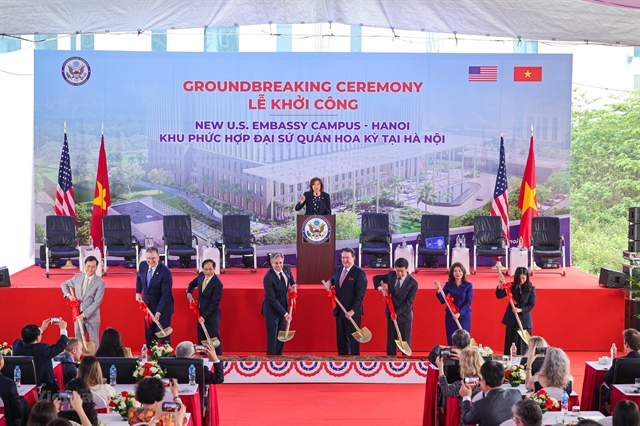
“We‘re advancing a free and open, connected, prosperous, secure, and resilient Indo-Pacific region, one that is at peace and rooted in respect for the rules-based international order. And we’re continuing to work together to address the legacy of the war in Việt Nam,” he said.
The new embassy building would be eight stories tall and large enough to accommodate all personnel, according to the US diplomat
The embassy will also be able to increase the number of consular service windows by four times the current capacity, allowing for more efficient and faster processing of visas and passports for a larger number of people, he noted.
It is estimated that over the course of six years of construction, the project will provide employment for approximately 1,800 local workers and contribute an additional $350 million to the Vietnamese economy.
At the event, Vice Chairman of the Hà Nội People’s Committee Dương Đức Tuấn said that the project is the result of many years of effort by both countries with the active participation of many agencies.
Just before the US Secretary of State’s visit, Hà Nội City’s authorities approved the detailed planning for the remaining part of the new Cầu Giấy urban area at a ratio of 1/500 in the planning area with the code D30, which is an important condition for carrying out procedures related to the construction of the embassy.
The Hà Nội People’s Committee will continue to closely coordinate with central agencies and the US Embassy in the construction process, supporting the project to achieve its goals and timeline.
The current US Embassy is located at No. 7 Láng Hạ Street, Ba Đình District, in Hà Nội. When the embassy opened 26 days after US President Bill Clinton announced the normalisation of diplomatic relations with Việt Nam, then US State Secretary Warren Christopher came to attend the opening ceremony.
“When Secretary Christopher opened our embassy in Hà Nội in 1995, he spoke of building a bridge of cooperation between our nations. But what no one could have anticipated… and what is plainly visible to all today, almost three decades later… is everything that building that bridge has enabled. With this new campus, we will be able to foster still more of those connections – and all the relationships, innovations, and opportunities that come with them,” Blinken concluded his address.

